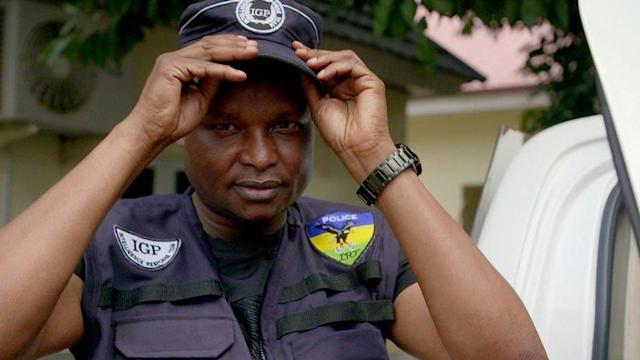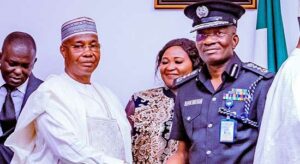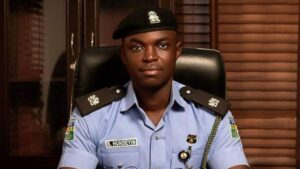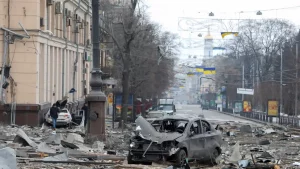History has shown that only through effective institutions can a solid foundation for nation-building be established. Recent happenings in some agencies and parastatals of government have again revealed the need for the giant of Africa to redirect effort towards institution building which includes, reinforcing acceptable behaviours, norms, values, and the need to always put national interest ahead of individual gains. One of the strongest institutions that speak of the strength of any nation is the judiciary and law enforcement agencies. When the law is no respecter of persons, citizens respect the law knowing well that any act of misconduct will attract consequences.
The administration of the immediate former president of the United States has proven that a nation only thrives because of structures established to strengthen institutions and that the excesses of an individual should not bring an entire nation to comatose. Sound institutions serve as effective safeguards against inefficiency and corruption. The judiciary of the United States saved the day when it stood its ground by disregarding claims by President Trump when he alleged without clear evidence that the presidential elections were rigged. Trump made attempts to pressurize Brad Raffensperger, the Georgia Secretary of State, to find adequate Republican votes to overturn the presidential election result. When the press later got a hold of the transcript of that conversation, it was established that such an act passes for an impeachable offence. What a classic example of an institution that is revered beyond the wish or personality of an elected representative.
In 2020, former President Trump refused to concede defeat in the elections, even after the Cybersecurity and Infrastructure Security Agency established that the election was the most secure in American history with no evidence of deleted votes. The chairman of the Joint Chiefs of Staff, General Mark Milley, said in a speech at the opening of the US Army’s museum, “we are unique among militaries. We do not take an oath to a king or a queen, a tyrant or a dictator. We do not take an oath to an individual. We do not take an oath to a country, a tribe, or a religion. We take an oath to the Constitution. And every soldier that is represented in this museum—every sailor, every airman, Marine, Coast Guardsman—each of us will protect and defend that document regardless of personal price.”
The recent sensationalism surrounding the once-upon-a-time heroic super cop, Abba Kyari, and his unfortunate fall from grace, largely proves that Nigeria is a wide contrast from the United States in terms of institutional development. It is interesting how the police report to the Attorney General of the Federation stated that Kyari violated the provisions of the Social Media Policy (SMP) for the Nigerian Police, by broadcasting pictures and video clips to his followers on social media. The question is, why did the police as an institution of government, wait for this huge embarrassment before cautioning Kyari about his flamboyant lifestyle and show of glamour on social media? A quick review of his social media posts from 2017 leaves little to the imagination, as he often posts pictures of himself in the company of music stars, billionaire businessmen, and other high-profile members of society.
On the other hand, why did it take almost 7 months of aimless back and forth before the Nigerian government concluded on the form of disciplinary action that should be meted on Kyari, aside from being suspended? Talking about being suspended, the fact that officers of the IRT would rather brief suspended kyari on the development of a crime than report to their new commander, who was reportedly in Sokoto to quell insecurity, speaks a lot about our nation. While Kyari successfully cracked some high-profile criminal cases, there were several accusations of extrajudicial killings and other allegations of fraud, but they were flagrantly neglected? Recall the popular case of Evans Onwuamadike that threw Kyari into the limelight. Evans’ lawyers accused Kyari and his men of taking N50 million from him and another N5million from his wife under the disguise that he would be released on bail. Evans further alleged that he was dispossessed of $10,000 by police officers led by Kyari.
The sense of condonement that made it right for a suspended cop who has brought shame to the police and the nation to attend the wedding of the IGP’s son is even more worrisome. Had he attended the event quietly out of respect for his boss, it would have been understandable. How could he have shamelessly flooded the internet with pictures taken from the event? This raises more questions than answers.
Finally, the way and manner Ms. Hadiza Usman, suspended general manager of the Nigerian Port Authority was ridiculed out of the office without any clear evidence, or indictment equally speaks of the frailty of our democratic system. One would have felt that before President Buhari confirmed the appointment of Mr. Bello-Koko, the new managing director of the NPA, Hadiza Usman would at least be formally indicted by the ministry of Transport and its probe committee.
We cannot continue to run a system that lacks accountability and transparency, because one of the important elements of governance is trust and stability. Without strong institutions, a democratic political system cannot work, and these are pre-requisite for the sustainable development of any nation.
George Akubo wrote in from Port Harcourt






